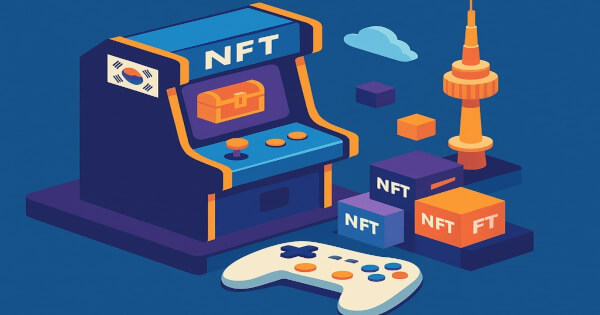Korea's Gaming Giants Double Down on NFTs: Can Seoul Lead Web3 Gaming?
Khushi V Rangdhol Sep 29, 2025 17:50
South Korea's gaming giants are embracing NFTs and Web3, positioning Seoul as a potential leader in decentralized gaming despite regulatory challenges.

South Korea’s gaming giants are making a significant and strategic commitment to integrating NFTs and Web3 technologies in their gaming ecosystems, positioning Seoul as a potential global leader in decentralized gaming. Here is a detailed, structured look into this evolving scene.
South Korea’s Major Gaming Players Embrace Web3
Leading gaming companies like Netmarble, Wemade, and Nexon are spearheading the move toward blockchain-based games featuring NFTs and decentralized economies. Netmarble’s blockchain-focused subsidiary MARBLEX has unveiled an ambitious 2025 roadmap to launch at least seven new Web3-enabled titles spanning RPGs, strategy, and simulation genres. These games emphasize "fun-first" gameplay combined with blockchain infrastructure to facilitate true player ownership and dynamic NFTs that evolve during play. Key projects include Self-made Billionaire: Stock Game, Mercenary Children, and Dice Go!, supported by a $20 million fund in partnership with Immutable, a major blockchain gaming platform. Content creator incentives and cross-game NFT trades are central to their model, designed to increase engagement and long-term value for players.
Similarly, Wemade’s MIR4 attracted over 1.3 million global players by blending traditional MMO gameplay with blockchain-based asset ownership, boosting the perception of NFT games’ commercial viability. Nexon explores NFTs through projects like MapleStory Universe, pushing the boundaries of integrating NFTs within popular game franchises to expand metaverse concepts and player asset control.
Regulatory Landscape and Challenges
Despite corporate momentum, South Korea’s regulatory environment complicates the development of NFT gaming locally. Government authorities raised concerns about NFTs being linked to gambling, leading to restrictions on blockchain-based games in domestic markets. Consequently, many companies focus on overseas users in North America and Southeast Asia. However, recent political discussions suggest a shifting regulatory stance, potentially easing restrictions to foster innovation and economic growth in blockchain technologies. This regulatory uncertainty has created a push-and-pull dynamic between industry enthusiasm and cautious policymaking, but also signals a possibly more favorable future environment for Web3 gaming in Korea.
Overcoming the “Web3 Gaming is Dead” Narrative
There has been significant skepticism about Web3 gaming, with some touting it as a failed experiment due to initial hype leading to low-quality games and speculative tokens overshadowing gameplay. South Korean gaming firms have taken these lessons to heart, focusing on balancing robust game design with blockchain utilities. By prioritizing user experience alongside decentralized asset ownership, these companies aim to build sustainable Web3 ecosystems rather than short-lived speculative bubbles. This disciplined approach fosters renewed confidence that blockchain can enhance, rather than detract from, gaming quality and player engagement.
Korea's Strengths and Position in the Global Web3 Gaming Market
South Korea’s combination of global gaming expertise, technological prowess, and a young, digital-savvy demographic creates an ideal environment for blockchain gaming innovation. The country benefits from a highly engaged player base familiar with sophisticated gameplay and a culture eager to adopt new digital trends. Additionally, Seoul hosts numerous blockchain gaming startups and venture capital funds that catalyze development and international expansion. As a result, South Korea stands poised to lead the next wave of digital gaming innovation by melding traditional gaming excellence with decentralized Web3 economies.
Conclusion: Seoul’s Emerging Role as a Web3 Gaming Hub
In sum, South Korea’s gaming giants are doubling down on NFTs and blockchain through strategic product launches, partnerships, and investments aimed at creating authentic, engaging Web3 gaming experiences. Despite regulatory obstacles, the combination of firm industry commitment, evolving government policy, and a fertile tech and gaming ecosystem positions Seoul as a prominent contender to lead the global Web3 gaming transformation. How these efforts play out will likely shape not only Korea’s digital entertainment sector but also global standards for blockchain integration in gaming for years to come.
Image source: Shutterstock

.jpg)